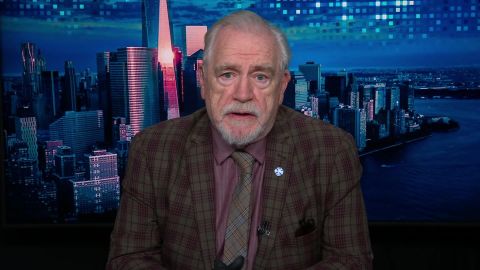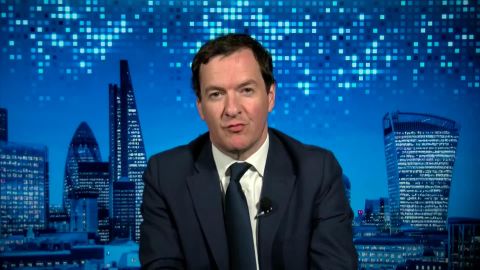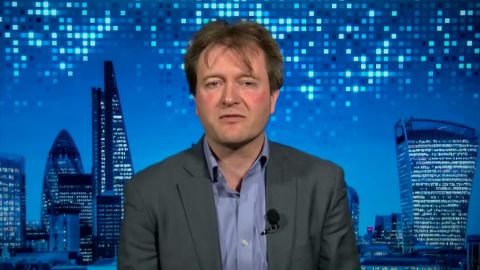Read Transcript EXPAND
RICHARD RATCLIFFE, HUSBAND OF NAZANIN ZAGHARI-RATCLIFFE: She came out of prison two days ago and, yes, was euphoric. It’s been lovely speaking to her a number of times on Skype and just seeing that big smile on her face and seeing her talk to Gabriella again. And Gabriella is our daughter, who is 5. And just lovely to have her out. And, in truth, I was probably a bit skeptical before it happened, because it had been talked about for a while and didn’t happen, and a bit skeptical it’s temporary releases. It’s lovely walking out of prison, but it’s horrible to walk back in. And, certainly, she’s had that once before, and it was an awful experience. But, actually, she was saying that: You don’t understand what a terrible place it is and I’m just so happy to be out. So, yes, we’re enjoying the moment. As you said in your intro, it is Iranian new year tonight, tomorrow. So, we will — Gabriella, our daughter, is busy painting eggs with her mom on Skype to celebrate. So we’re enjoying the moment in what’s been a tough few years for us.
In terms of what happens next, I think it’s — I mean, goodness knows. What has happened, you’re absolutely right, this coronavirus has devastated Iran in lots of way, and has run through the prison population. And, certainly, we think Nazanin has probably had it, since she got very ill a few weeks back, and they wouldn’t test her. And, certainly, I think the way that the authorities have managed that is, they have released a number of people on temporary release. There’s been about 85,000 announced. Can’t verify that. I mean, a lot of people have gone from Nazanin’s ward. And more than a third of them were released. And the supreme leader did announced that would be pardoning 10,000 of those who have been released. And 10,000 is quite a lot. So, it feels like we have got a ticket in that lottery, and we’re hoping that something happens. But part of my job is not to get too hopeful, just in case we have to keep on campaigning.
AMANPOUR: Right. Richard, did she — just remind me, did she get tested at all, even now that she’s out? Is it possible to test after the fact?
RATCLIFFE: No.
AMANPOUR: You said that — no, she hasn’t done. But she’s better, right? Her health is better?
RATCLIFFE: So, her health is much better. She was ill for about two weeks. She had all the symptoms, clearly felt terrible, but clearly didn’t have to go to hospital. They didn’t test her. I think they didn’t test her because they didn’t have any testing kids. They also clearly were under orders to test no prisoners. As far as I know, no one has been tested. And can she be tested now? Well, as you said in her intro, she’s got an ankle tag, which means she can’t go more than 300 meters from her parents’ home. That takes her as far as — it would only take her to the local park or to the local shops. But, yes, I mean, there are tests that are coming online, where you can test to see if you had it and if you have now…
(CROSSTALK)
AMANPOUR: Right.
RATCLIFFE: It would make sense for her do that at some point.
About This Episode EXPAND
George Osborne, former UK Chancellor of the Exchequer, explains the state of affairs in London amidst the coronavirus pandemic. Dr. David Ho tells Walter Isaacson about his work to develop a treatment for the virus. Richard Ratcliffe discusses his wife’s temporary release from an Iranian prison. Actor Brian Cox discusses the impact of the pandemic on theatre and the arts.
LEARN MORE



